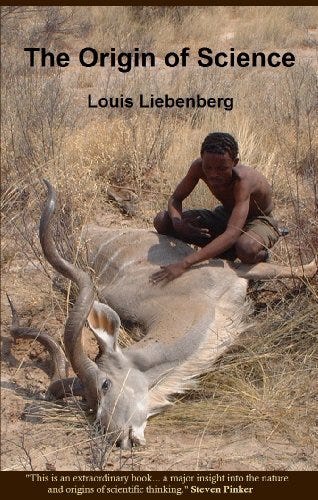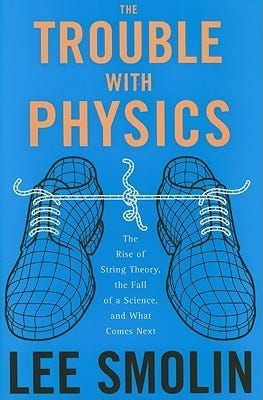Personal Science Week 230615
Defining science, book recommendations, and CGM updates
Producing these weekly Personal Science notes has forced me to confront how to define "science" in the first place. This week I’ll take another stab at an attempted answer, plus some CGM updates.
What is a Scientist?
In Personal Science Week 2022-12-29 we noted that everyday usage of the word “science” is underdetermined. Unless the speaker is especially precise, it can mean either (1) nature: often awe-inspiring facts about our world, (2) technology: useful products cleverly engineered, (3) a structured method for arriving at a better understanding of a phenomenon, or (4) truth itself, unchanging and reliable.
We credit “science” with many of the conveniences of our modern world, from antibiotics to airplanes. Even the most fervent believers in superstition or the paranormal often describe their own remedies in scientific terms, quoting studies or mechanisms of action that assume some basic tenets of what philosopher Michael Strevens summarizes as data + methods of the data collection + logic. Few people, if any, seriously reject “science”, even when defined in Strevens’ terms. If you dispute their conclusions, they’ll simply retort with different interpretations of your logic. Everyone in the modern world claims to be following “science”, so what makes a Personal Scientist different?
Answer: non-scientists rely on others, while scientists rely on first-hand experience.
You can’t live this way entirely, of course, because the world is just too complicated, so we must accept the importance of expertise and accept that some people are more qualified than others.
But to simply appeal to experts is to beg another question: which experts? On any subject worth investigating, experts will disagree – in fact, experts only agree on topics where counter-arguments are no longer available. On all the interesting questions, you are still stuck with the problem of which expert to trust.
Instead, Personal Science takes the question to the, well, personal level: trust what I can know and understand for myself.
A New York Times article claims that "Superfood" powders don’t work. A Personal Scientist doesn’t care what it does for the population they happened to study. You’re not a population. You’re you.
This is why we’re so interested in all forms of self-tracking. Call it “self-tracking”, but what we really mean is personal data collection and analysis, as opposed to reading about somebody else’s data collection and analysis, which is basically what you do when you trust an expert. Personal Scientists insist to the degree possible on applying this to ourselves.
Book Recommendations
Here are some additional books that helped me understand more about science and its implications for Personal Science:
The Origin of Science: On the Evolutionary Roots of Science and its Implications for Self-Education and Citizen Science by Louis Liebenberg. (Only $1 on Kindle). With a forward by Steven Pinker calling it “a major insight into the nature of scientific thinking”. Liebenberg makes the argument that science is a human instinct, practiced for as long as humans have needed to hunt. Originating as a series of techniques required for finding prey, people have been doing science for a long time, much longer than the “Scientific Revolution” that arbitrarily tries to assign the development of a form of reasoning that’s been around forever.
As quoted in another excellent book, The Trouble with Physics by Lee Smolin
“Deep, persistent problems are never solved by accident; they are only solved by people who are obsessed with them” (Google Books)
And don’t miss my recent review published in PROTO.LIFE of the excellent up-to-date The Age of Scientific Wellness by Lee Hood and Nathan Price.
CGM Updates
Readers of our previous discussions of continuous glucose monitoring (see 230406 and DIYCGM), will be interested in recordings of the Jun 13 Quantified Self Show-and-Tell, which featured several well-made presentations of several users experiences.
Incidentally, I’m happily tracking myself right now with a Libreview Freestyle 3, with its bluetooth connection. Previous devices required an annoying swipe every 8 hours, but this one updates automatically in real time. Very handy.
I paid about $40 for two CGM sensors at Costco recently. Your doctor will give you a prescription if you ask nicely (and remind him you’ll pay out of pocket, so it doesn’t affect insurance coverage). If you have trouble finding or asking a doctor, Tastermonial will for $35 give you a prescription you can take yourself to any pharmacy (the sensors will cost extra), or pay them $195 and they’ll ship you two sensors. It’s way cheaper than one of those commercial companies that typically charge $300-500 for the same device.
Another Glucose-Lowering Food Experiment
Meanwhile, as discussed in Personal Science Week 250525, I’ve been experimenting with products that claim to reduce glucose spikes when taken with a meal.
During the past week I’ve been testing JBA GlucoTrojan, a powdered version of Reducose that comes in small packets (about $1 each) that you add to a drink before eating. I’ve been trying it as part of a trial with Tastermonial. So far, it seems to work pretty well.


You can read many more details here, including the source code for my experiments.
About Personal Science
If you’re looking for productivity or health tips, there are better sites than this one. We are a short weekly summary for people who like to study the in-depth consequences of what it means to live a life oriented around science. If you’re looking for something specific, search our archives or contact us directly.



